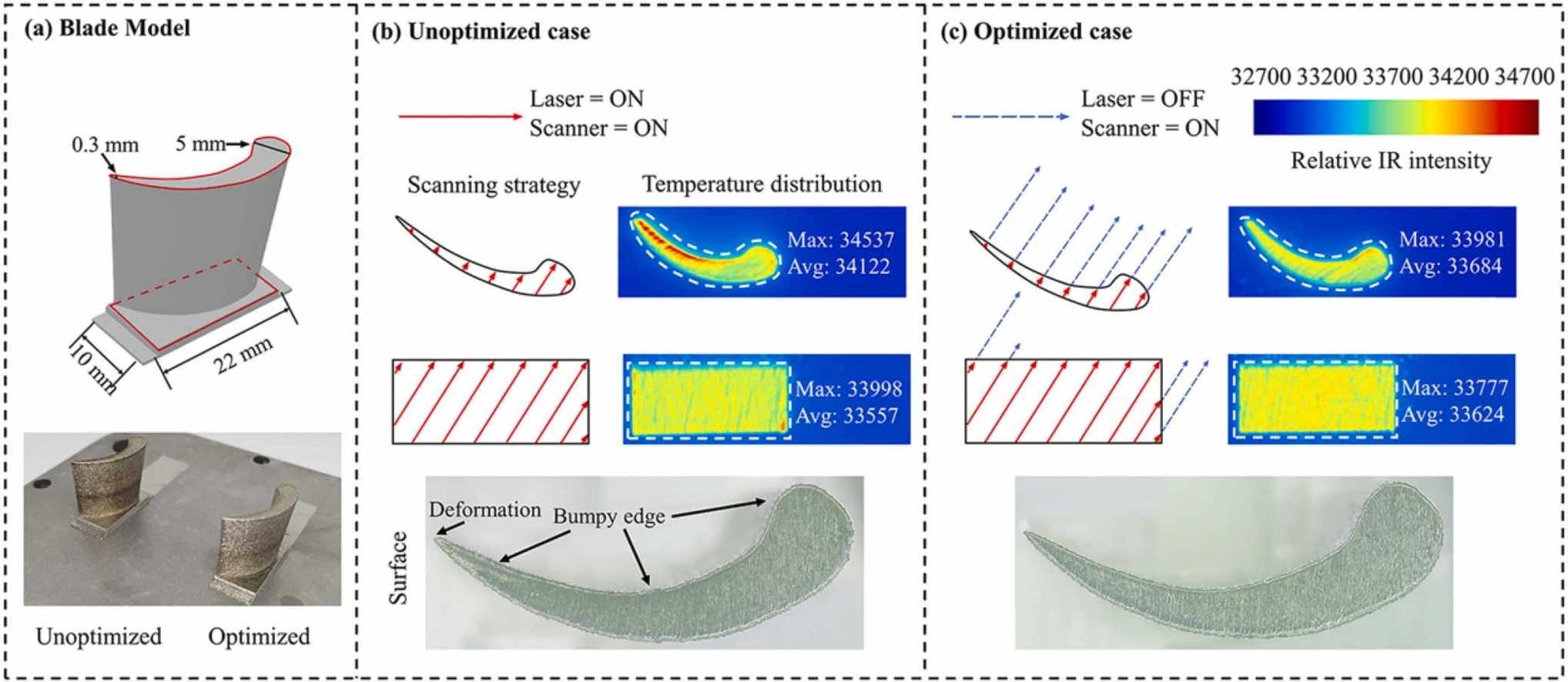·Paper Publications

Indexed by: Journal paper
Journal: Additive Manufacturing
Included Journals: SCI
Discipline: Engineering
First-Level Discipline: Mechanical Engineering
Document Type: J
Key Words: Laser powder bed fusion;Additive manufacturing;Heat accumulation;Short scanning lines;Optimized scanning strategy
DOI number: 10.1016/j.addma.2022.103256
Date of Publication: 2022-10-27
Impact Factor: 11.632
Abstract: During laser powder bed fusion (LPBF) additive manufacturing of components with complex geometries, short scanning lines easily induce localized excessive heat accumulation, resulting in poor manufacturing qualities, e.g., rough surface and low hardness, etc. An optimized scanning strategy was proposed to mitigate this heat accumulation to be consistent with the standard case. In the proposed strategy, a specific length of scanning line without laser energy was added to each short scanning line, making each scanning line of the same length. The temperature simulation results of 1 mm thin-walled specimen indicated that the conventional scanning strategy could easily drive a harsh increase in peak temperature, further leading to a harsh increase in melt pool size. After applying the optimized scanning strategy, the peak temperature and melt pool size of the 1 mm thin-walled specimen were almost similar to those of the standard specimen. Meanwhile, the corresponding experiments indicated that the average surface roughness and hardness of 1 mm thin-walled case processed by conventional scanning was Ra70 and 320 HV10. The deformation and bumpy area could be observed on the surface, the porosity was high, and the grain size tended to be larger. After optimization, the average surface roughness was decreased to Ra37 and the hardness was increased to 370 HV10. In addition, the above metallurgical defects were greatly reduced. The above scanning strategy was integrated into the self-developed LPBF equipment and manufacturing process, and the thin-walled blade model was processed to verify the feasibility of the optimized scanning strategy for complex parts. Since the scanning strategy is independent of material and process parameters, it is beneficial to improve the process and quality stability of LPBF manufacturing complex parts.
Links to published journals: https://doi.org/10.1016/j.addma.2022.103256
